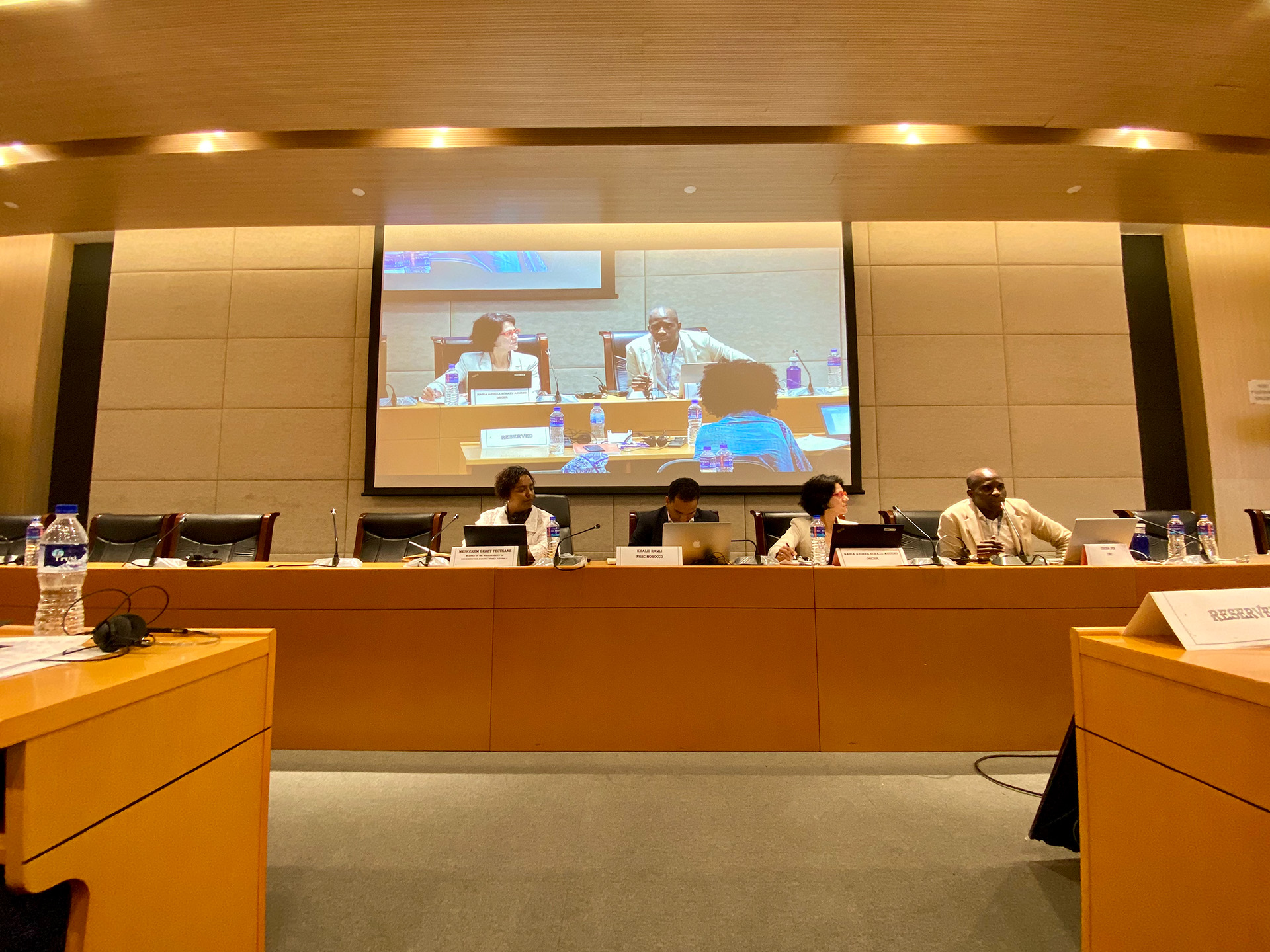In a panel moderated by Maria Andrea Echazu Aguero of the Office of the High Commissioner for Human Rights (OHCHR), speakers analysed how the implementation of the African Continental Free Trade Agreement (ACFTA) should move forward to avoid jeopardising the rights of Africans, worsening climate change or exacerbating gender inequalities in the continent.
Panellists were Ebrima Dem, representative of the Food and Agriculture Organization of the United Nations (FAO) in the Gambia, Meskerem Geset Techane, member of the UN Working Group on discrimination against women and girls, and Khalid Ramli, member of the National Human Rights Commission of Morocco (NHRC) and speaking on behalf of the Network of African National Human Rights Institutions (NANHRI).
The ACFTA: an opportunity for sustainability?
Speaking on behalf of FAO, Ebrima Dem described free trade as a human right, but one that can only be achieved when freedom of movement already exists – something he said only exists ‘on paper’ in many areas of the continent. For Dem, ensuring people have the right to move freely is not only of benefit to trade, it is also a way to tackle food insecurities and of strengthening livelihoods by opening avenues for commerce.
However, he acknowledged that barriers to trade and how the latter is impacted by climate change both affect women more harshly, calling on States to ensure that women and women’s concerns are heard and represented across when States seek to implement policies that find themselves at the nexus for trade, climate change mitigation, and food security.
Trade cannot trump women’s rights and concerns
For Meskerem Geset Techane, trade can be an opportunity to address gender imbalances, though there is also evidence that trade policies can worsen these and other inequalities. Policymakers, she stressed, often overlook women’s contributions and the specific gender challenges that they face in trade and trade processes. She pointed to the limited efforts on the part of State institutions to meaningfully engage with women and women’s groups in the context of trade negotiations.
Meskerem Geset Techane then urged States to explicitly recognise the specific role women hold in trade processes and the impact that deals like the ACFTA can have on them and their places in their respective societies. She called on governments to include a gender lens and to ensure the participation of women and other marginalised groups at all stages of trade policy, from the design stage to the negotiations ahead of implementation of major trade deals.
National Human Rights Institutions as guides for rights-based trade policies
According to Khalid Ramli, in the absence of a solid human rights-based approach in its implementation, the ACFTA could cause many vulnerable Africans to be left behind. For Ramli, national human rights institutions (NHRIs) can become effective interlocutors in bringing about such an approach, given the increasing recognition they enjoy as a result of the work they do at the UN Human Rights Council and at the General Assembly.
NHRIs, he added, can advocate for the UN Human Rights guiding principles – ‘respect, protect, redress’ – to become a mainstream element in the policy guidelines that feed into the implementation of trade agreements. NHRIs can act as focal points to obtain redress for violations of human rights in the context of processes tied to the implementation of free trade agreements, while also using their positions to advocate for and advise States on how to adequately take up the responsibilities of ensuring rights are respected and protected.
However, Ramli acknowledged, various NHRIs in Africa lack the expertise as well as the human and financial resources to effectively weigh in on the issue of trade. The Network of African National Human Rights Institutions (NANHRI) has thus been working to engage States and NHRIs themselves on the role that the latter can and should play in the context of the implementation of the ACFTA, but also on matters related to business and human rights issues in general.
Download as PDF




